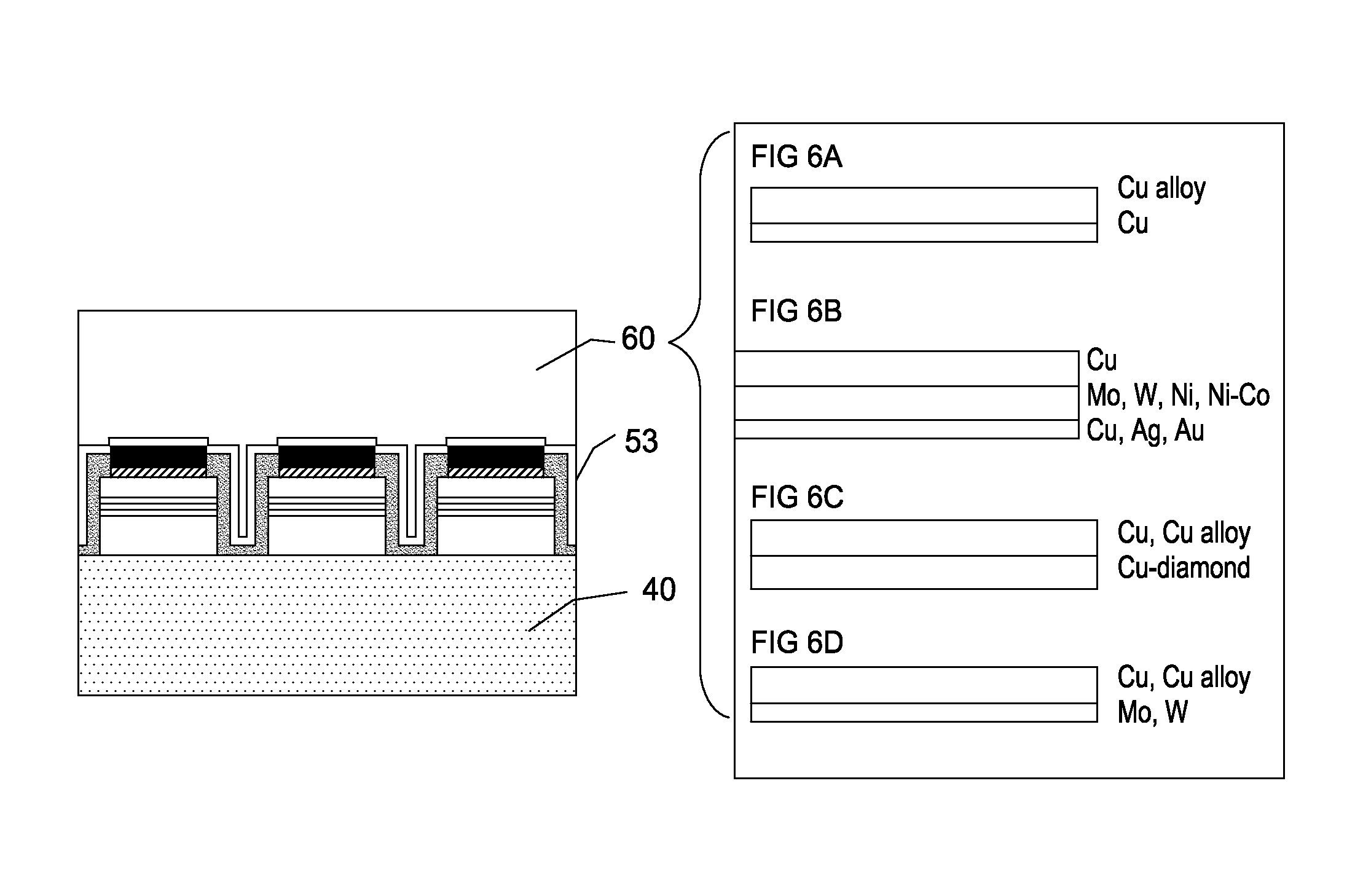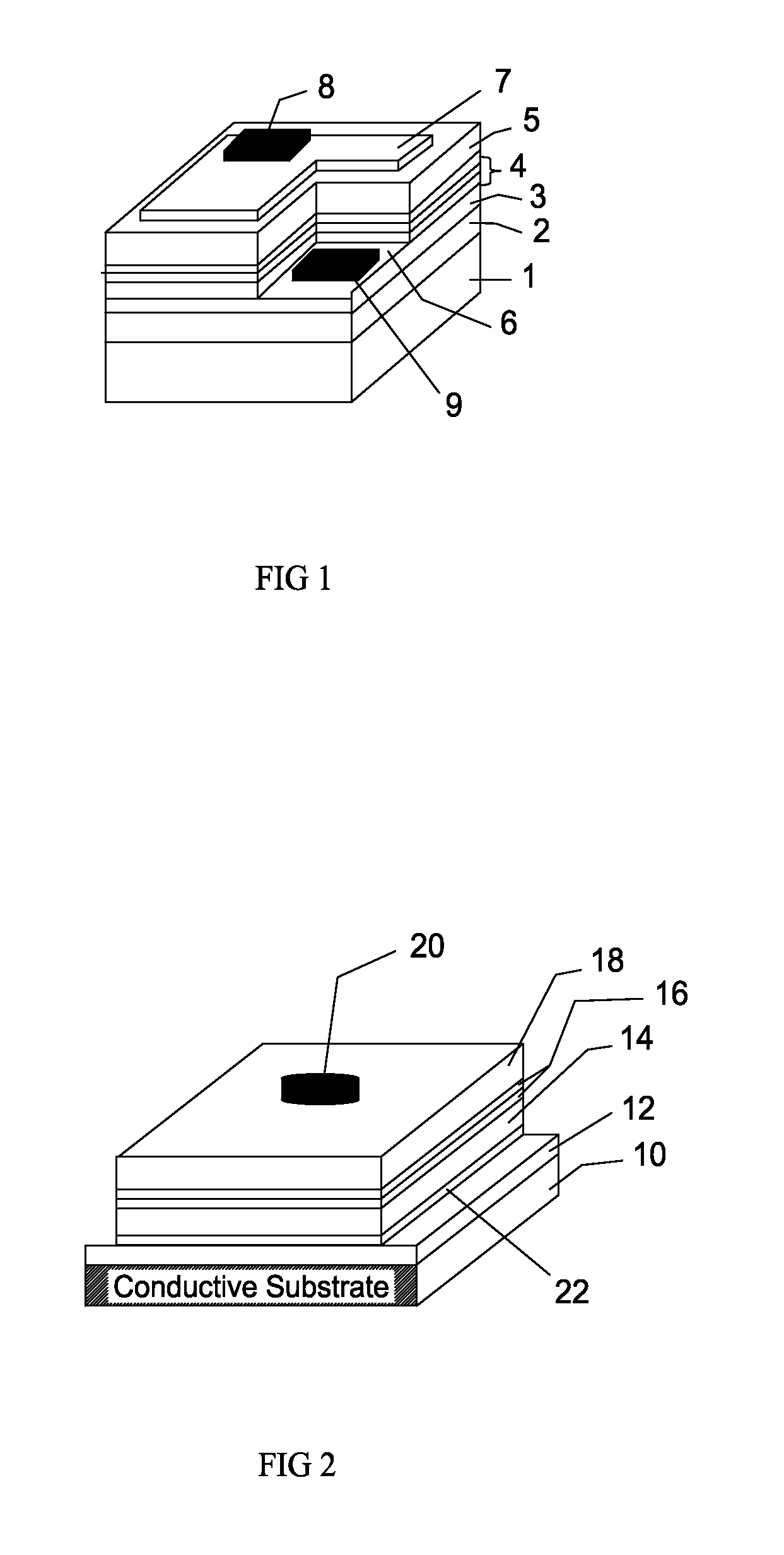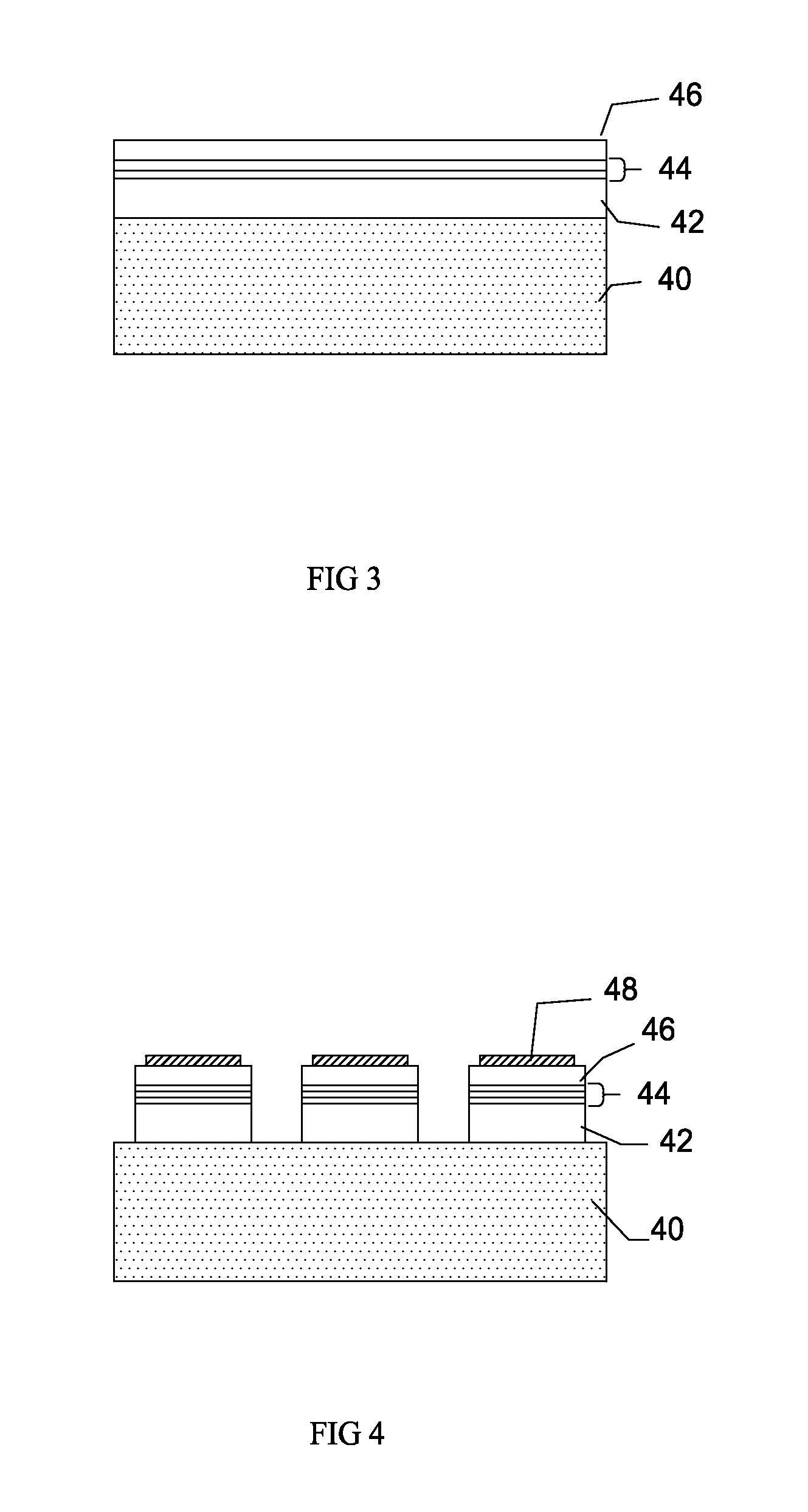Method for handling a semiconductor wafer assembly
a technology of semiconductor wafers and assembly methods, applied in semiconductor devices, lasers, semiconductor lasers, etc., can solve the problems of obstructing light, reducing obstructing light, so as to reduce the area of light emitting from the device, reduce the effect of light, and increase the led performan
- Summary
- Abstract
- Description
- Claims
- Application Information
AI Technical Summary
Benefits of technology
Problems solved by technology
Method used
Image
Examples
Embodiment Construction
[0038]In reading the detailed description, the accompanying drawings may be referenced at the same time and considered as part of the detailed description.
[0039]Referring to FIGS. 3 to 8, a manufacturing method for vertical LEDs is illustrated therein. In the description, the reference numerals given for the inventive device structure will be also used in the recitation of the steps of the inventive manufacturing method.
[0040]The process described below is for one embodiment with InGaN LEDs initially grown on sapphire. Electro or Electroless Chemical plating is then used to deposit a thick contact for electrical and thermal conduction for the resulting LED device. Electro or Electroless Chemical plating is used in lieu of wafer bonding. The process can be applied to any optoelectronic device where bonding was used to attach the epilayer to a new host substrate for improvement of optical, electrical and thermal properties.
[0041]For example, the techniques described herein may be appl...
PUM
 Login to View More
Login to View More Abstract
Description
Claims
Application Information
 Login to View More
Login to View More - R&D
- Intellectual Property
- Life Sciences
- Materials
- Tech Scout
- Unparalleled Data Quality
- Higher Quality Content
- 60% Fewer Hallucinations
Browse by: Latest US Patents, China's latest patents, Technical Efficacy Thesaurus, Application Domain, Technology Topic, Popular Technical Reports.
© 2025 PatSnap. All rights reserved.Legal|Privacy policy|Modern Slavery Act Transparency Statement|Sitemap|About US| Contact US: help@patsnap.com



